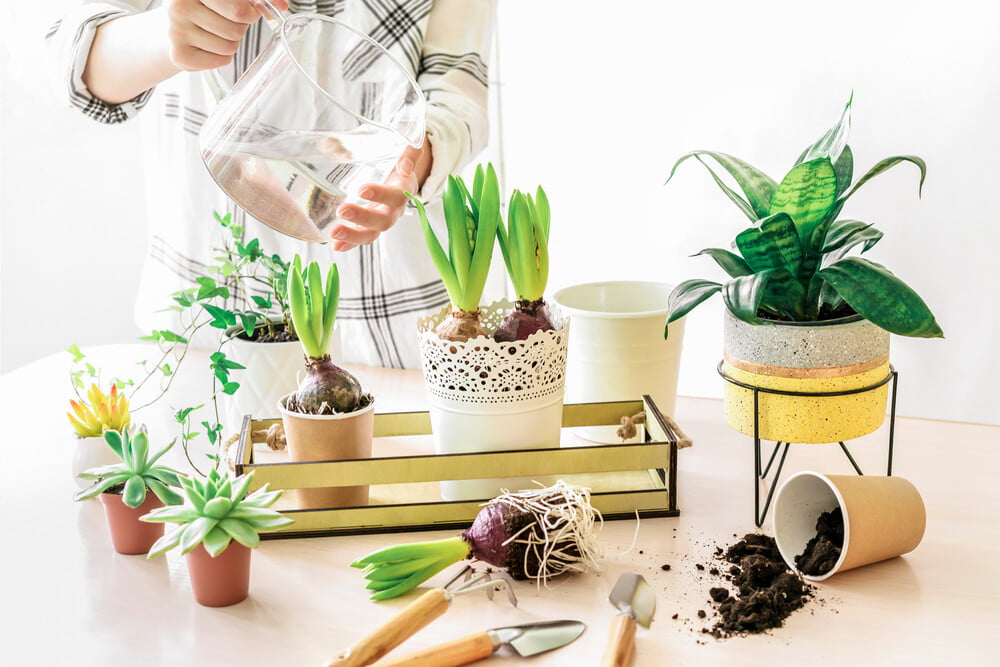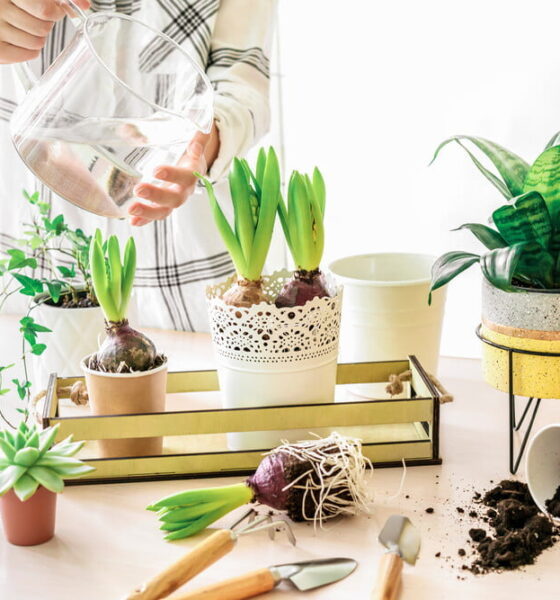

Environment
Ready To Build Your Urban Garden? How To Grow Healthy Plants Indoors
A survey by the Royal Horticultural Society found that 80% of millennials own a houseplant of some sort. But did you know that caring for indoor plants also comes with its share of benefits? Besides improving our well-being by boosting moods and concentration, indoor plants are beneficial to our home. Growing plants indoors, especially edibles, eliminates the need to package and transport produce. As a result, there is minimal waste created and reduced carbon emissions.
Indoor gardening also makes it easier to control pests and diseases without the use of chemical-based herbicides and pesticides. And as water shortages threaten the future of agriculture, cultivating indoor plants can boost sustainability. If you have been looking to create a more sustainable garden, here are tips on how to grow healthy indoor plants.
Choose a Gardening Style
When it comes to indoor gardening, you need to choose between growing plants in soil or hydroponics. Soil gardening entails cultivating plants in pots, planters, and containers. It is the most preferred option by homeowners as it allows them to grow crops regardless of size and shape. You can also hang or rearrange plants cultivated in containers as desired with little effort.
Hydroponic gardening is an excellent option if you want to grow a lot of plants in a limited space. This method does not require soil but fertilized water and non-starter soil for your houseplants. Ideally, hydroponic gardens are suitable for cultivating vegetables like tomatoes, lettuce, spinach, cucumber, and celery. You can also grow different herbs such as basil, rosemary, green mint, and sage.
Consider Spaces with Natural Lighting
Growing healthy houseplants depends a lot on choosing the right space for interior gardening. Pick a room with a lot of windows to ensure there is plenty of natural light. It is also advisable to place your container or hydroponic garden close to windows.
This way, your plants can receive the required amount of heat and sunlight needed for healthy growth. Avoid setting your indoor garden in cold rooms like the attic and garage. Cold temperatures slow growth and can kill your plants.
Pick the Right Plants
Selecting the right houseplants can be a challenge, but with a bit of research, you can make the right decision. Before you can pick a plant from the nursery, determine the amount of sunlight that flows inside your home. For instance, if your house receives 4-6 hours of natural light, choose plants that thrive in high-lit areas. Consider indoor plants like the bird of paradise, fiddle leaf fig, jade plant, or a cactus. For low-lit areas, choose Ivy plants, golden pothos, lucky bamboo, or herbs like thyme, mint, and parsley.
Your gardening style will also influence your choice of houseplants. For example, if you practice hydroponic gardening, you want to make sure your houseplants can thrive in water. Take some time to research indoor plants that do well in hydroponics. The best thing about water houseplant is that they are easy to maintain, and they don’t require a lot of space.
Provide Adequate Humidity
Although most indoor plants tolerate dry air, they thrive well in higher humidity. Low humidity leads to leaf yellowing and curling, browning of leaf tips, and buds dropping. Houseplants also become prone to pests and diseases if the air is too dry. For these reasons, commit to raising humidity around your indoor plants. You can achieve the best results by misting, growing plants together, or creating a humidity tray.
Cultivating houseplants can improve your indoor environment by removing air toxins and adding a touch of natural beauty. Whether you grow flowering plants, herbs, or vegetables, indoor gardening is a sure way of reducing your carbon footprint. To enjoy numerous benefits, grow plants you love. Also, dedicate time to water, fertilize, and prune them as required.


 Features11 months ago
Features11 months agoEco-Friendly Cryptocurrencies: Sustainable Investment Choices

 Energy11 months ago
Energy11 months agoThe Growing Role of Solar Panels in Ireland’s Energy Future

 Energy10 months ago
Energy10 months agoGrowth of Solar Power in Dublin: A Sustainable Revolution

 Energy10 months ago
Energy10 months agoRenewable Energy Adoption Can Combat Climate Change




















